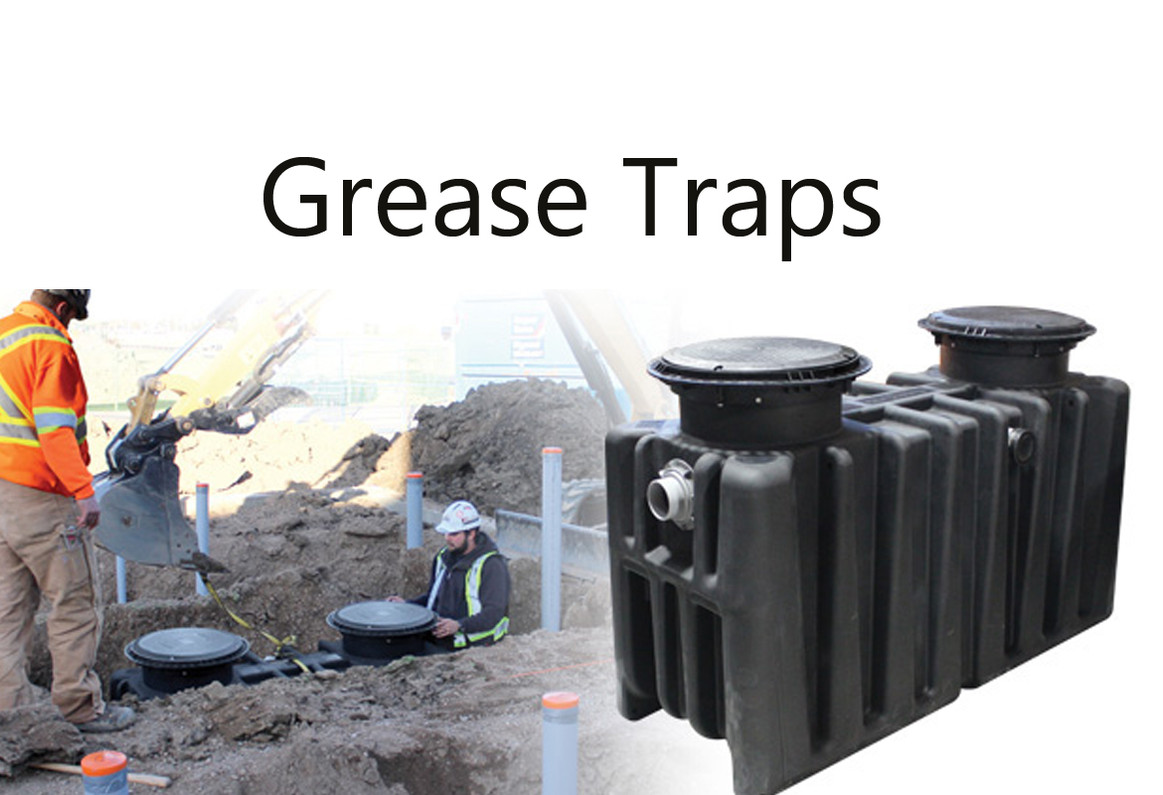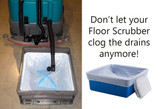What does Grease Trap do?
Grease traps, also known as grease interceptors, are plumbing devices designed to capture and separate fats, oils, and greases (FOGs) from wastewater flowing from commercial and industrial kitchens. How do Grease Traps Work? Grease traps work on the principle of density difference between water and grease. They consist of a tank with a series of compartments and tees that slow down the flow of wastewater, allowing the grease to cool, solidify, and separate from the water. The grease is then stored in the tank until it is removed by a licensed professional.
Types of Grease Traps:
- Hydromechanical Grease Traps: These are the most common type, which use a combination of gravity and flow control to separate grease from wastewater. Click to learn more and purchase
- Gravity Grease Traps: These rely solely on gravity to separate grease from wastewater.
- Automatic Grease Traps: These use sensors and pumps to automatically remove grease and solids from the wastewater stream. Click to learn more about Automatic Grease traps
Benefits of Grease Traps:
- Prevent Clogged Drains: Grease traps prevent FOGs from entering the drainage system, reducing the risk of clogs and backups.
- Protect Sewer Systems: Grease traps help prevent the accumulation of FOGs in sewer systems, which can lead to costly repairs and environmental hazards.
- Compliance with Regulations: Grease traps help businesses comply with local regulations and codes regarding wastewater discharge.
Maintenance and Cleaning: Regular maintenance, monitoring and cleaning are crucial to ensure the effectiveness of grease traps. This includes:
- Regular Inspections: Check the trap for any signs of clogging or malfunction. A Grease Trap Monitor makes this job a lot easier!
- Cleaning and Pumping: Remove accumulated grease and solids from the trap. Consider using a Rapid release FOG block to reduce grease trap cleanings.
- Record Keeping: Keep records of maintenance and cleaning activities. A grease trap monitor can also help with record keeping.
Conclusion: Grease traps are an essential component of commercial and industrial kitchen plumbing systems, helping to prevent clogged drains, protect sewer systems, and ensure compliance with regulations. Regular maintenance and cleaning are necessary to ensure their effectiveness.
Recent Posts
-
How to clean a Grease Trap
Cleaning a grease trap is an important maintenance task to prevent clogs, odors, and compliance issu …16th Dec 2024 -
What does Grease Trap do?
Grease traps, also known as grease interceptors, are plumbing devices designed to capture and separa …4th Jun 2024 -
Where to dump a Floor Scrubber?
An important aspect of operating a floor scrubber is the proper dumping of the cleaning solutio …2nd May 2024




